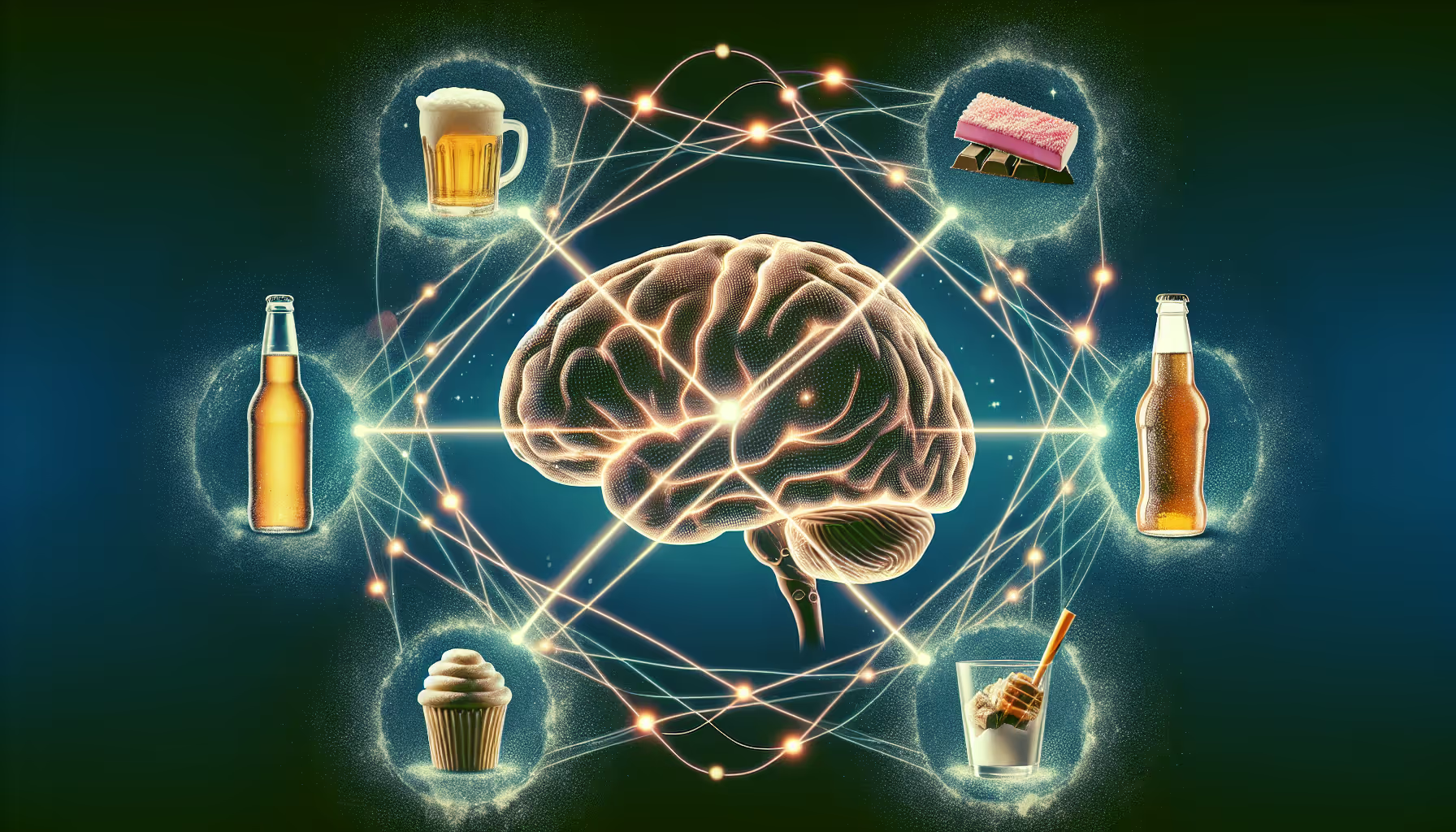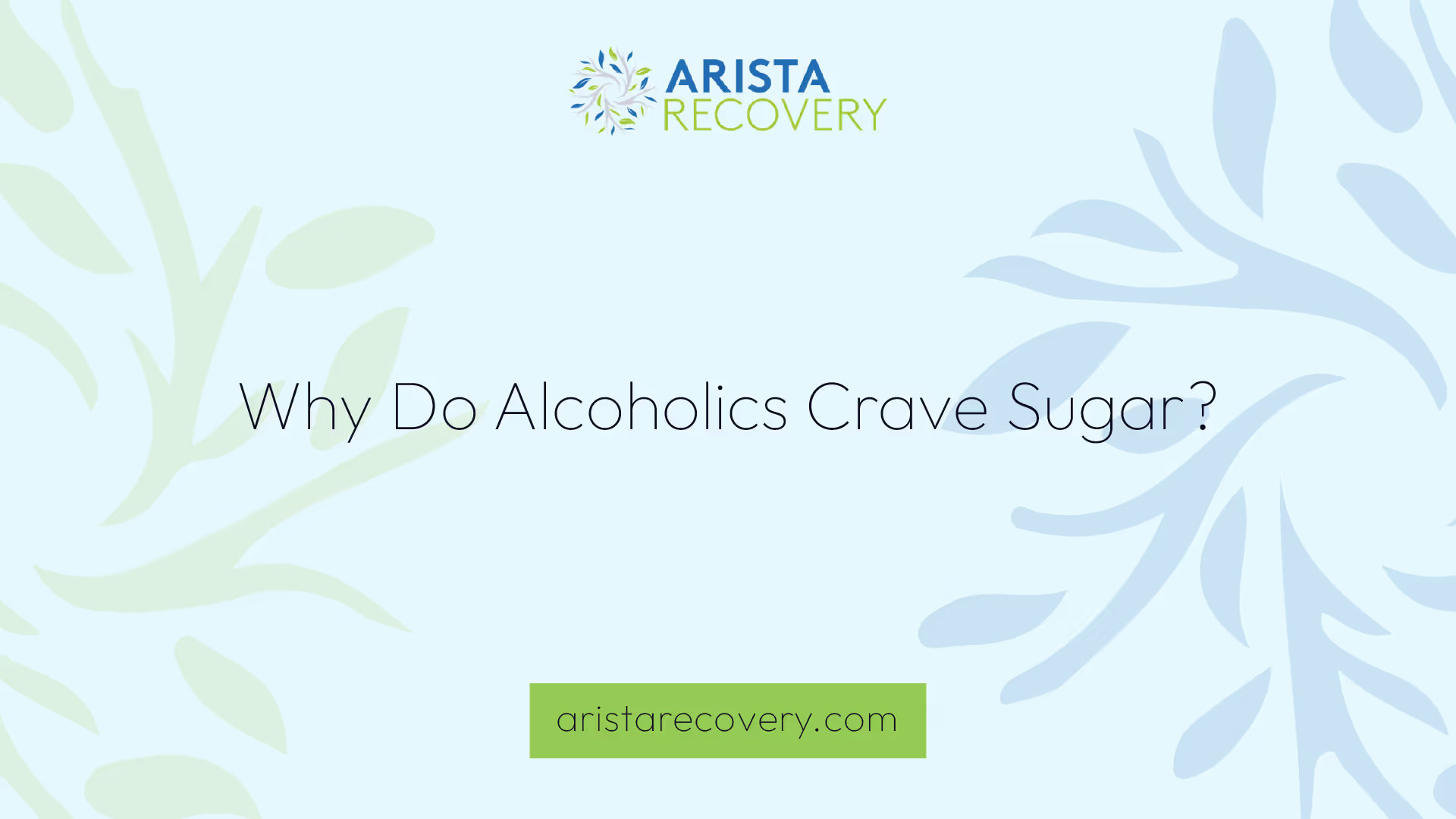Why Do Alcoholics Crave Sugar?

Understanding Alcohol and Sugar Cravings
To answer the question, "why do alcoholics crave sugar?", it's important to delve into the physiological and biochemical factors at play. This involves understanding the roles of certain brain chemicals, specifically dopamine and serotonin, as well as the impact of alcohol on blood sugar levels.

The Role of Dopamine and Serotonin
Dopamine and serotonin are two neurotransmitters in the brain that are responsible for regulating mood, motivation, and reward. When an individual consumes alcohol, these neurotransmitters are stimulated, leading to feelings of pleasure and satisfaction. However, chronic alcohol consumption can lead to alterations in these brain chemicals, resulting in decreased levels of dopamine and serotonin.
This decrease can lead to a desire for foods that can boost these neurotransmitters, such as sugar-rich foods. Thus, alcoholics may crave sugar due to low levels of dopamine and serotonin in the brain, contributing to sugar cravings in individuals recovering from alcohol addiction [1].
Impact of Alcohol on Blood Sugar Levels
Alcohol can have a significant impact on blood sugar levels, which is another contributing factor to why alcoholics crave sugar. Consuming alcohol can disrupt blood sugar levels, leading to an increased desire for sugar to rebalance these levels. This can result in individuals with alcohol use disorder craving sugary foods or drinks [1].
Chronic alcohol consumption can affect the liver's ability to regulate glucose and insulin levels, potentially leading to fluctuations in blood sugar levels. These fluctuations can trigger sugar cravings in alcoholics as the body attempts to stabilize its blood sugar levels.
Additionally, the gut-brain axis plays a role in alcoholics craving sugar. Changes in gut bacteria due to alcohol consumption can influence the brain's response to food, potentially leading to an increased desire for sugar-rich foods [1].
In conclusion, the interplay of neurological, physiological, and biochemical factors can help explain why alcoholics may experience intense sugar cravings. Understanding these factors is essential as it can provide valuable insights for individuals in recovery from alcohol addiction, and aid in the development of effective treatment strategies.
The Effect of Alcohol on Taste Receptors
When exploring why alcoholics crave sugar, it's important to understand the impact of alcohol on taste receptors. Chronic alcohol consumption may cause changes in these receptors, leading to increased sensitivity to sweet tastes and a corresponding desire for sugary foods or drinks.
Sensitivity to Sweet Tastes
Alcoholics may experience changes in their taste receptors due to chronic alcohol consumption, making them more sensitive to sweet tastes. This heightened sensitivity can stimulate sugar cravings, contributing to a cycle of excessive sugar consumption. This biological alteration in taste perception can lead to increased consumption of sugary foods and drinks in alcoholics [1].
The link between alcohol use and sugar consumption may be due to the impact of alcohol on the brain's reward system. This system can alter the perception and desire for sweet tastes, further intensifying the craving for sugar.
Preference for Sweet Drinks in Alcoholics
In addition to increased sensitivity to sweet tastes, alcoholics also tend to have a preference for sweet drinks. This preference can be attributed to the effects of alcohol on the brain, specifically increasing the desire for sweet and high-fat foods. As a result, alcoholics may engage in overeating and consume higher calories, primarily from sweet foods and beverages.
High sugar intake can result in addictive-like behaviors in individuals, including cravings and a loss of control over consumption. This addictive nature of sugar can be particularly problematic for alcoholics, as it may exacerbate their struggles with alcohol use disorder.
Regular alcohol drinkers can become tolerant to sugar from their alcohol intake, leading individuals in recovery from alcohol abuse to experience cravings for sugar. These sugar cravings may actually be more prominent than cravings for alcohol due to the association of sugar intake with pleasure historically derived from alcohol. Like alcohol and drugs, sugar impacts the same region of the brain, stimulating the brain's pleasure center, and can potentially lead to a similar cycle of addiction.
In conclusion, the interplay between alcohol, taste receptors, and sugar cravings is complex and multifaceted. Understanding these connections can provide valuable insights into the dietary struggles faced by alcoholics and help guide effective strategies for managing sugar cravings in recovery.
The Link Between Alcohol and Sugar Addiction
Understanding the link between alcohol and sugar addiction is crucial in the field of addiction recovery and can shed light on the common query, 'why do alcoholics crave sugar?'.
Sugar's Impact on the Brain's Reward System
Alcohol and sugar addiction often go hand in hand due to their shared impact on the brain's reward system, specifically the release of dopamine. People susceptible to alcohol addiction are more likely to develop sugar addiction as well. This connection can be traced back to the brain's reward system, which can be altered by the impact of alcohol, altering the perception and desire for sweet tastes. This change in taste perception can lead to increased consumption of sugary foods and drinks in alcoholics.
Furthermore, sugar can act as a substitute for alcohol in individuals recovering from alcohol addiction, providing temporary pleasure and comfort. However, this can lead to its own set of health concerns and potentially develop into a sugar addiction.
The Dangers of Sugar Addiction in Alcoholics
High sugar intake can result in addictive-like behaviors in individuals, including cravings and a loss of control over consumption. This addictive nature of sugar can be particularly problematic for alcoholics, as it may exacerbate their struggles with alcohol use disorder [2].
Regular alcohol drinkers can become tolerant to sugar from their alcohol intake. As a result, individuals in recovery from alcohol abuse may experience cravings for sugar. These sugar cravings may actually be more prominent than cravings for alcohol due to the association of sugar intake with pleasure historically derived from alcohol. Sugar impacts the same region of the brain as alcohol and drugs, stimulating the brain's pleasure center.
In summary, the inherent dangers of sugar addiction in alcoholics underscore the importance of addressing both alcohol and sugar addiction in the recovery process. A comprehensive approach to addiction recovery should therefore incorporate strategies to manage both alcohol and sugar cravings.
The Role of Nutrition in Alcohol Recovery
Nutrition plays a crucial part in the recovery process for individuals recovering from alcohol addiction. The link between food, mood, and cravings is increasingly being recognized in addiction treatment, with a focus on a holistic approach that addresses both the mind and body.
Importance of a Balanced Diet in Recovery
Alcohol addiction can have significant effects on an individual's nutrition, often leading to malnourishment and deficiencies in both macro and micro-nutrients. This can result in individuals being overweight or underweight due to years of poor nutrition from alcohol consumption. As such, a balanced diet is essential in aiding recovery and restoring physical health.
However, it's important to note that poor nutrition in recovery can lead to various mental and physical health issues, such as weight gain and low mood, which can trigger a relapse. Therefore, individuals in recovery are encouraged to prioritize their nutrition as a form of self-care that can positively impact sobriety.
Eating a whole foods plant-based diet can help stabilize blood sugar levels, reduce cravings for sugar, and address both sugar and alcohol cravings in recovery. This approach to nutrition can support a more balanced mood and overall better well-being during the recovery process.
Strategies for Managing Sugar Cravings
Another important aspect of recovery is managing the sugar cravings that often come with alcohol recovery. Sugar activates the brain's pleasure center in a similar manner to alcohol and drugs, and research indicates that sugar can be even more rewarding than these substances. This can lead to a sugar addiction developing in individuals recovering from alcohol abuse.
Strategies for managing these cravings can include:
- Eating Regular, Balanced Meals: Regular meals can help maintain stable blood sugar levels, reducing the likelihood of sugar cravings. These meals should be balanced, including a mix of proteins, fats, and carbohydrates, and ideally based on whole foods.
- Staying Hydrated: Dehydration can often be mistaken for hunger or sugar cravings. Regularly drinking water throughout the day can help manage these cravings.
- Exercising Regularly: Physical activity can help reduce cravings and improve mood, making it an essential part of recovery.
- Getting Adequate Sleep: Lack of sleep can intensify cravings for sugar. Ensuring a good night's sleep can help manage these cravings.
- Seeking Professional Help: Nutritionists or dietitians specializing in addiction recovery can provide personalized advice and strategies for managing cravings during recovery.
As individuals navigate their recovery journey, it's important to remember that nutrition plays a key role in supporting both physical and mental health. Understanding why alcoholics crave sugar and implementing strategies to manage these cravings can be a significant step towards successful recovery.
The Neuropsychology of Cravings
The neuropsychology of cravings, particularly in relation to alcohol dependence and sugar cravings, is a complex and multifaceted topic. This section will delve into how cravings relate to alcohol dependence as well as the genetic factors that might influence these cravings.
Craving and Alcohol Dependence
Craving is a common symptom reported by individuals who exhibit multiple symptoms of alcohol dependence. In a study sample, it was found that 97.3% of those reporting craving met the criteria for DSM-IV alcohol dependence, with 48% endorsing all seven dependence criteria. This finding underscores the strong connection between craving, whether for alcohol or for sugar, and alcohol dependence. It also highlights the need for understanding and addressing cravings in the context of alcohol dependence treatment and recovery.
Genetic Factors Influencing Cravings
Recent research has shed light on the genetic factors that could influence cravings among individuals with alcohol dependence. Genes in the dopamine pathway, including dopamine receptor genes (DRD1, DRD2, DRD3, DRD4) and the dopamine transporter gene (SLC6A3), as well as alpha-synuclein (SNCA), have been associated with alcohol craving [5].
Furthermore, a Genome-Wide Association Study (GWAS) found strong evidence of association between a Single Nucleotide Polymorphism (SNP) in the integrin alpha D (ITGAD) gene on chromosome 7 (rs2454908) and alcohol craving. Interestingly, this same SNP also showed association with DSM-IV alcohol dependence, but to a lesser extent with dependence without craving [5].
While adjusting for dependence severity (number of endorsed criteria) did attenuate the p-values for genetic variants associated with craving, it did not eliminate the association, suggesting that there may be unique genetic factors affecting craving among those with alcohol dependence.
These findings suggest that the genetic pathways contributing to craving may be distinct from those influencing other aspects of substance dependence. Therefore, a further understanding of these genetic factors could provide valuable insights into the development of more effective treatment strategies for individuals struggling with alcohol dependence and associated sugar cravings.
References
[1]: https://www.medicalnewstoday.com/articles/312918
[2]: https://pubmed.ncbi.nlm.nih.gov/20648910/
[3]: https://www.familyaddictionspecialist.com/blog/putting-down-the-alcohol-picking-up-the-sugar-the-relationship-between-alcohol-addiction-and-su
You’re not alone in this.
When mental health challenges and addiction intersect, it can feel isolating. At Arista, we offer compassionate, evidence-based, and trauma-informed care to help you heal, grow, and move forward.
You’re not alone in this.
When mental health challenges and addiction intersect, it can feel isolating. At Arista, we offer compassionate, evidence-based, and trauma-informed care to help you heal, grow, and move forward.
Support that moves with you.
You’ve taken a brave first step. At Arista Recovery, we’re here to help you continue with best-in-class care designed for long-term healing and support.
.webp)






